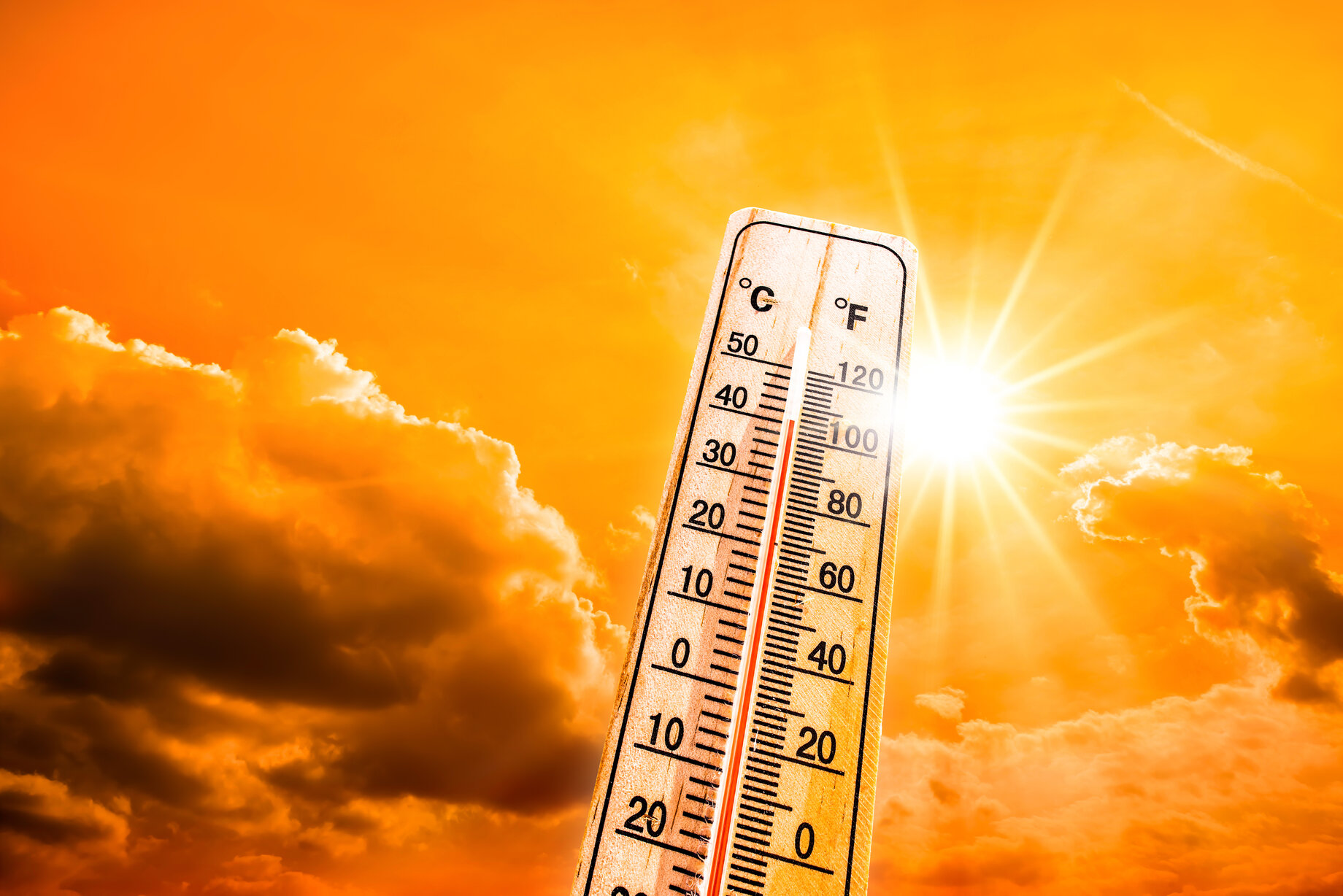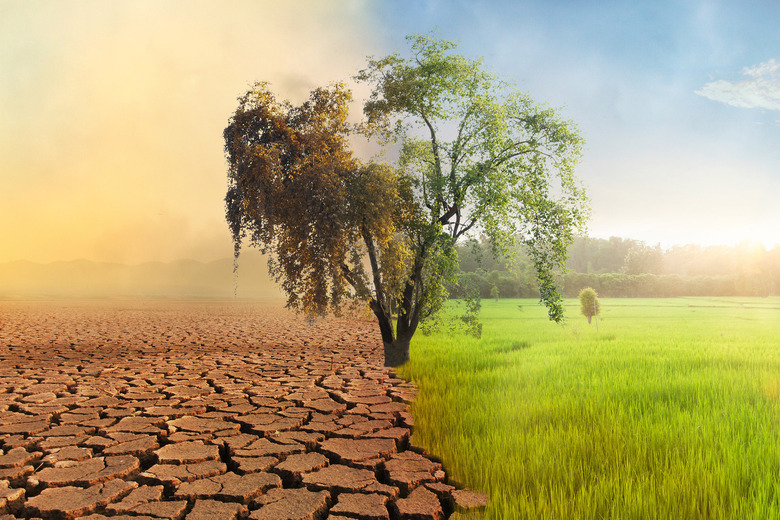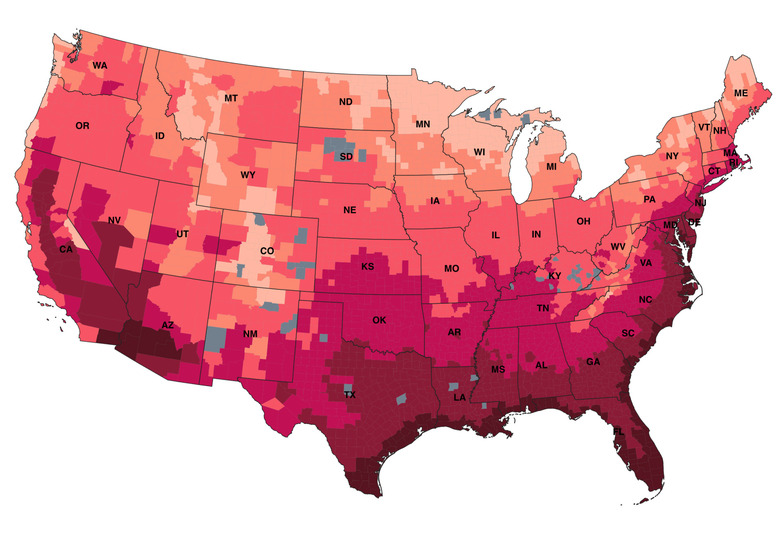Interactive Site Shows The Horrific Future Of Climate Change In 2050
A new interactive site shows the future of climate change by letting you look up your exact zip code, city, or county. The site is called Risk Factor, and it breaks down several different risks and showcases them across the country. One of the most prominent risks you can look at, though, is your current Heat Factor. Not only does it show how you're at risk, but it showcases how that risk is increasing every year.
The future of climate change is looking bleak
The nonprofit First Street Foundation created the website, which recently released a new model to determine how climate change affects the world. Whether you believe in global warming or not, there is no denying that increasing temperatures have put millions at risk. And that risk isn't going away anytime soon.
In fact, it's only going to get worse. While there are definitely plans to reverse climate change being looked at, knowing the risks associated with your state or even county can help you better prepare to deal with the future of climate change.
"Increasing temperatures are broadly discussed as averages, but the focus should be on the extension of the extreme tail events expected in a given year," Matthew Eby, the founder and CEO of First Street Foundation shared in a press release. "We need to be prepared for the inevitable."

Eby says that soon a quarter of the country will fall under what First Street Foundation calls an Extreme Heat Belt. When that happens, temperatures exceeding 125 degrees Fahrenheit will affect a large portion of the country. And that could leave many suffering or even dead because many parts of the world aren't ready for that kind of climate change in the future.
You can check out Risk Factor for a chance to see how factors like flooding and heat will affect your immediate area. The website uses First Street Foundations' new extreme heat model, which claims that over 1,023 counties will exceed 125 degrees Fahrenheit by 2053. That's an extreme change in just 30 years. And, if we're being honest, we should all be terrified by ongoing climate change.
More science coverage: See how the sea level rising could affect us all.

